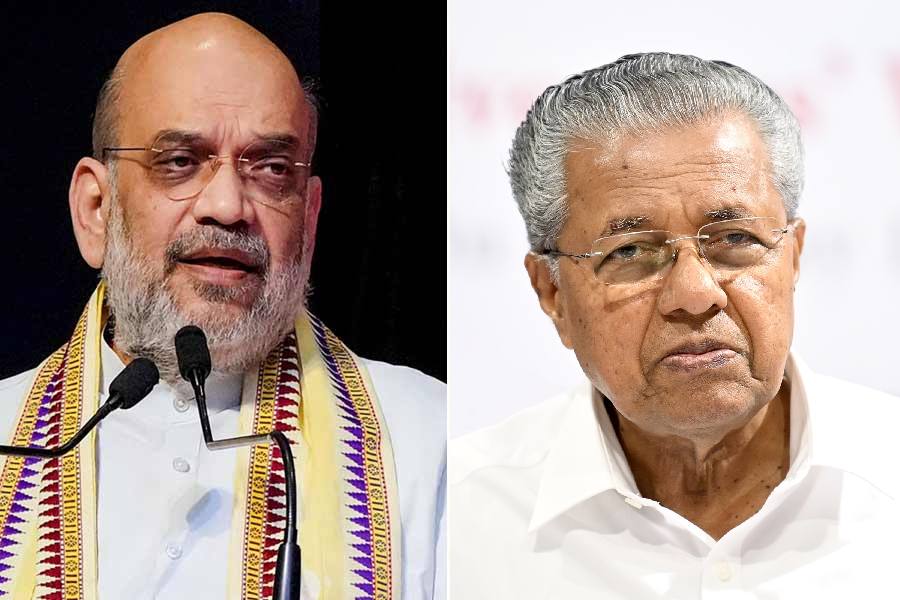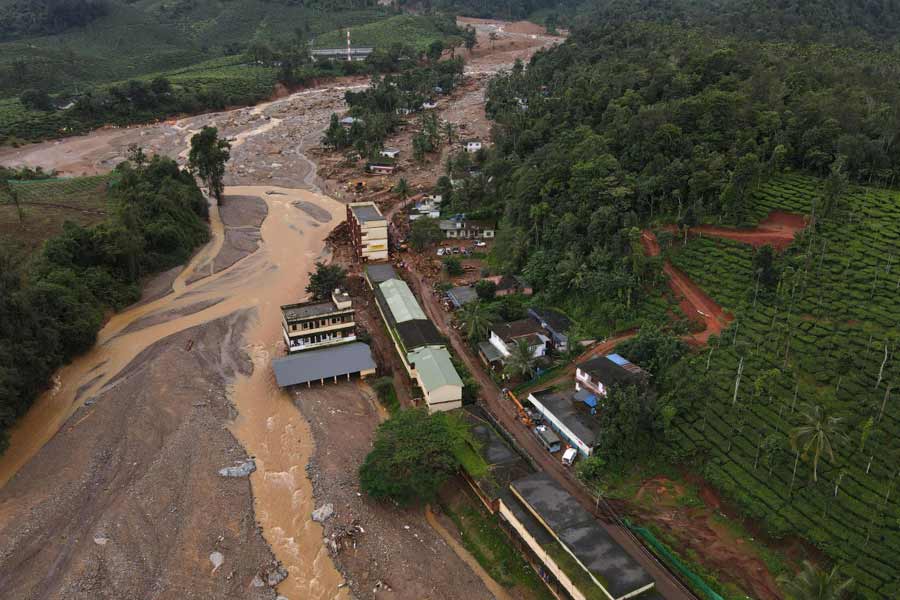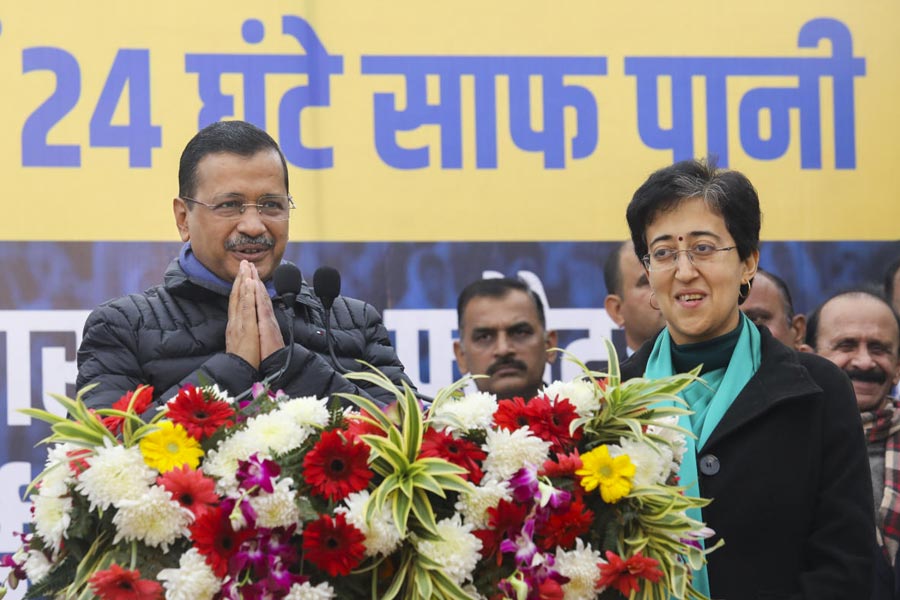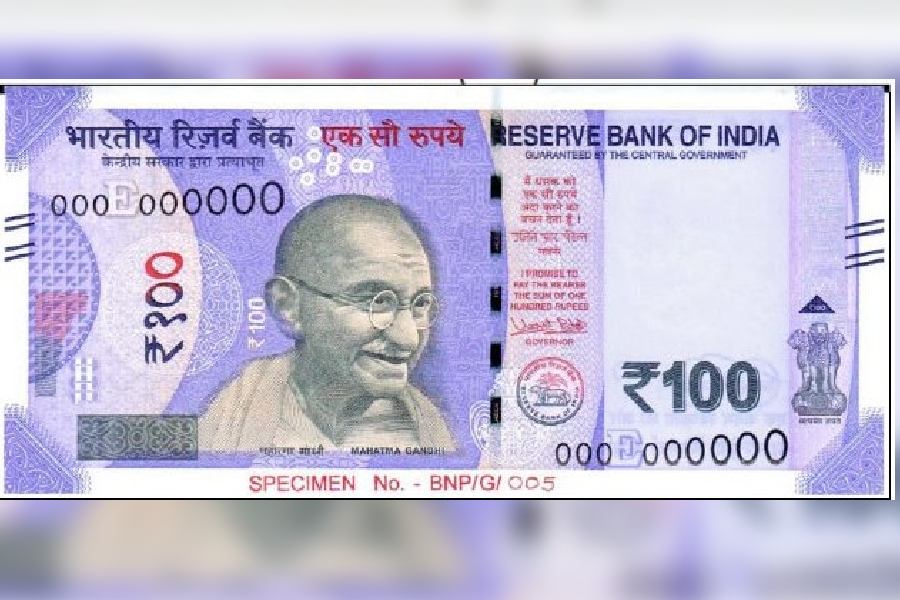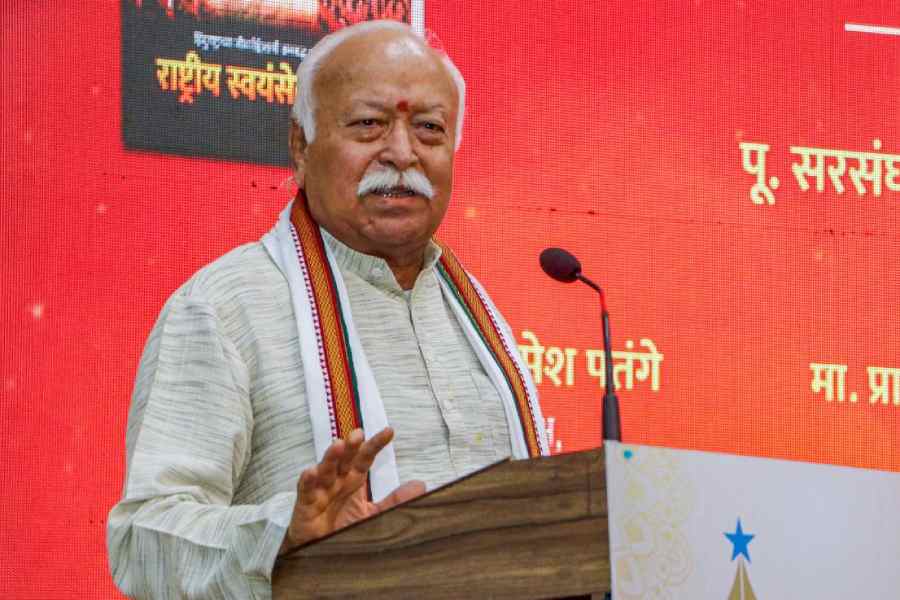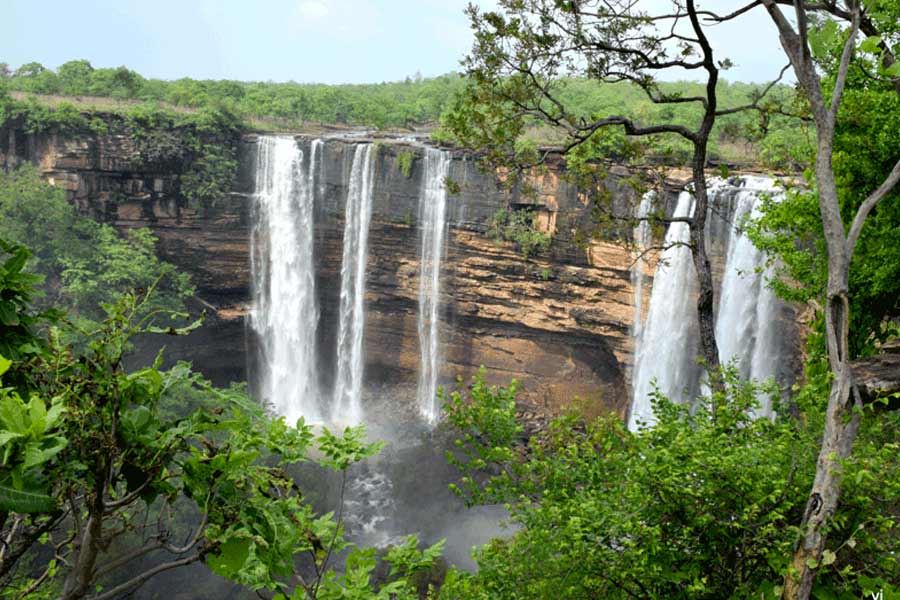The Centre had forewarned the Kerala government about possible floods and landslides but it ignored these warnings, Union Home Minister Amit Shah said on Wednesday in Parliament, prompting a sharp response from state chief minister Pinarayi Vijayan, who refuted his remarks as "baseless" and "inconsistent".
Shah said that multiple "advance warnings" were given to the Kerala government before the tragedy on July 30. At least 167 people have died and over 200 injured in the massive landslides that hit the northern Kerala district of Wayanad on Wednesday.
"I would like to specify that on July 23, the Kerala government was given an early warning by the central government, seven days prior (to the tragedy) then again on July 24, and July 25. On July 26 it was informed that there would be heavy rainfall of more than 20 centimeters, there is a possibility of a landslide, there could be a rush of mud and people could even die by getting buried beneath it.," Shah said.
His statement came amidst criticism from the Opposition who blamed the loss of lives due to the lack of early warning systems for natural calamities such as the one in Wayanad.
"I would like to reiterate that early warning was given and therefore we dispatched nine NDRF teams there on July 23 whereas three battalions were sent yesterday (July 30)," the Union Home Minister said.
If the state government had been alert to the arrival of the NDRF teams, a lot could have been saved, Shah asserted but added that this was not the time to blame anyone and assured the House that the Narendra Modi government was standing like a "rock" with the Kerala government and people of the state in this moment of tragedy.
However, Vijayan strongly refuted Shah's claim at a press conference in Thiruvananthapuram and gave details of the alerts issued by various central agencies, asserting that the Union home minister has presented information in Parliament that was "inconsistent" with facts. However, he also said this was not the time for a "blame game".
Noting that in the disaster areas, an orange alert was in place with the Central Meteorological Center warning that rainfall would be between 115 and 204 mm, Vijayan said: "However, the actual rainfall was much higher. The area received 200 mm of rain in the first 24 hours and 372 mm in the next 24 hours, totaling 572 mm in 48 hours." He further said: "This far exceeded the initial warning. The area had never been on red alert before the disaster. However, after the incident, a red alert was issued at 6 in the morning." The chief minister also gave detailed information about the alerts issued for the state from July 23 onwards by the various central agencies.
"Between July 23 and July 28, the Central Meteorological Department did not issue any orange alerts for heavy rain in Kerala. On July 29 at 1 pm, an orange alert was only issued for the Wayanad district. The red alert and the possibility of heavy rain for Wayanad were announced only at 6 am on July 30, after the landslide," he said. A red alert indicates heavy to extremely heavy rain of over 20 cm in 24 hours, while an orange alert means very heavy rain (6 cm to 20 cm).
"From July 23 to 29, the Central Water Commission, which is responsible for issuing flood warnings, did not issue any warnings for either Iruvazhinji Puzha or Chaliyar. The Union Home Minister has presented information in Parliament that is inconsistent with these facts," he asserted.
"So, we can see that what was said in Parliament today was baseless," he asserted.
The chief minister also said that this was not the time for a "blame game" and that he was not taking Shah's remarks in an adversarial manner.
On the NDRF teams in the state, he said the teams were made available at the beginning of the rainy season based on Kerala's prior request for nine NDRF teams. Asserting that climate change has led to significant alterations, the chief minister said there was a need to take proactive steps to address and adapt to these changes. "When faced with these issues, can we avoid responsibility by claiming it’s not our duty to get involved? The Central government should also consider this issue seriously. As part of addressing climate change, effective measures should be taken to prevent the impending disasters," he said.
"To reiterate, this is not a time for blaming each other. We are currently confronting a disaster, and many people are left in desperate and destitute conditions. Act now to rescue those who can be saved and locate those who are buried. Push hard to restore the area and rebuild the lost village. Keeping everything together is crucial at this critical moment," he said.
He also urged everyone to come forward to support Kerala, Earlier, Shah also said that many state governments have followed the Centre's warnings, leading to zero casualties in disaster management. During the Naveen Patnaik-led government in Odisha, the Centre had sent an alert about the cyclone almost seven days in advance and the state government was able to prevent disaster, Shah said. Unfortunately, one person died, he said.
A similar alert was sent to the Gujarat government three days before the cyclone and not a single life was lost as timely action was taken, he added.
He also said that the Central government has had an early warning system since 2014 and Rs 2000 crore has been spent on it. Warnings are being sent to every state and are available on the website also, he added.
Except for the headline, this story has not been edited by The Telegraph Online staff and has been published from a syndicated feed.

